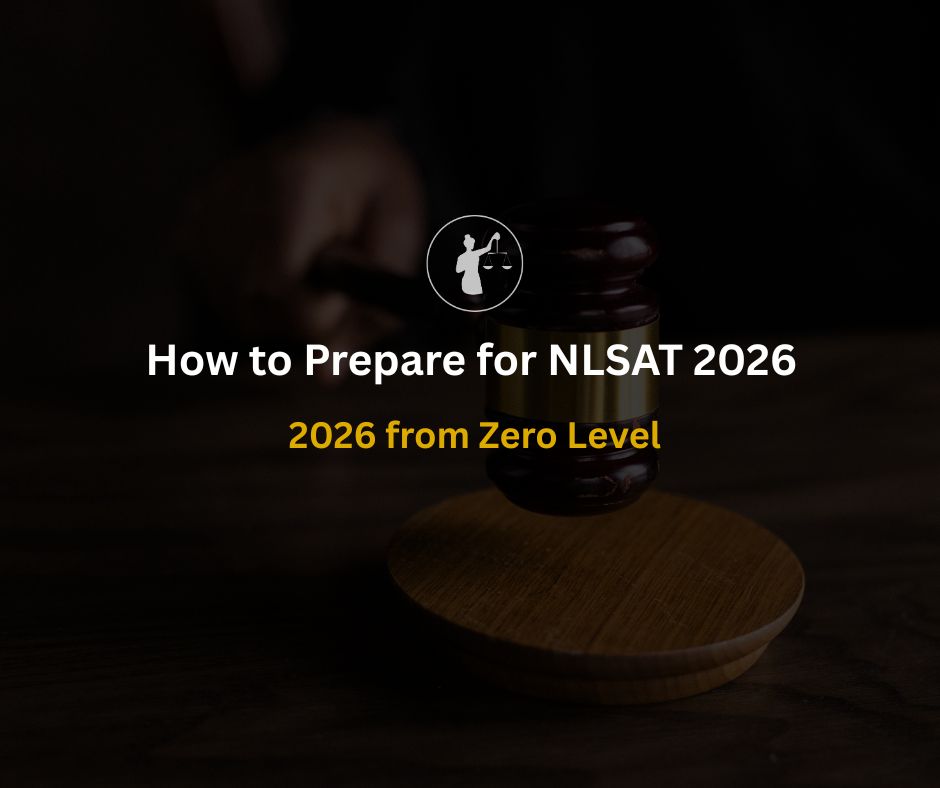
Akshat Shraff, AIR 9 in CLAT 2025 and AIR 7 in AILET, built his prep around 6–7 focused hours a day, Notion-based GK tracking with friends, and 70+ well-analysed mocks. He held alternate-day GK sessions in the final month, followed a section-wise improvement plan, and stayed consistent without overloading on resources. This blog breaks down the exact habits and strategies that led to his success.
Hailing from Kolkata, Akshat secured AIR 9 in CLAT 2025 and AIR 7 in AILET 2025. He wasn’t one of those candidates posting daily scorecards or switching prep strategies every week. Instead, he built a rhythm early, stuck to what worked, and stayed grounded even when mock scores dipped.
He kept his approach simple: “If I could get 1% better each day, the rest would take care of itself.”
Akshat didn’t follow any influencer-style 10-hour grind routine. His average study time was about 6 to 7 hours a day, but what made it work was how he spent those hours.
Here’s what a typical day looked like:
8–10 AM – Reading The Hindu editorial + maintaining a one-pager on Notion for vocabulary and news recall
11 AM–1 PM – Sectional practice (rotating daily: Legal, Logical, Quant)
4–6 PM – Mock analysis, doubt-solving, or GK review with friends
Post-dinner (not daily) – Casual review of Notion flashcards or past mistakes
One key rule he followed: never go to bed without fixing at least one weakness from the day.
One of the most standout parts of Akshat’s prep was how he handled Current Affairs.
Instead of relying solely on monthly compilations, he and a few close prep buddies created a shared Notion workspace where they uploaded:
Daily headlines in bullet format
Short notes on important judgments, bills, and international affairs
Questions they got wrong from quizzes and mocks
Weekly review questions for revision
About a month before CLAT, they ramped it up. Every alternate evening, Akshat and his study group held GK recap sessions on Google Meet. No long lectures just rapid-fire Q&A, source-checking, and explaining answers to each other.
> “It kept the pressure off and made GK feel less like a chore. I remembered things better because I talked about them, not just read them.”
Akshat didn’t just “take” mocks — he studied them. He completed over 70 full-length mocks, but the part that made a difference was his review system.
He used a simple three-column sheet after each mock:
What I got wrong
Why I got it wrong (panic, misread, logic gap, etc.)
What I’ll do next time
Legal and Logical were usually his best sections, so he used them to build confidence during mocks. GK and Quant were his focus points during analysis.
He also color-coded his progress by section every Sunday. “If my Quant accuracy stayed yellow for two weeks, I knew I was slacking.”
Akshat enrolled in NLTI’s mentorship program in the final few months of prep. His mentor? Ashutosh Kar, CLAT 2024’s AIR 10 someone who had walked the exact same path just a year earlier.
> “Ashutosh bhaiya didn’t sugarcoat anything. He called out my laziness when needed and kept me focused when I was overthinking minor details.”
Some real things that helped from NLTI’s side:
Weekly check-ins where they reviewed mock analytics together
Time-budgeting drills to prevent him from overspending time in RC or Logical
A personal tracker that Ashutosh updated to keep him accountable
Honest conversations when self-doubt started creeping in
NLTI also made sure he wasn’t overloading on resources. He had a set content bank for each section no mindless switching.
English and RC
Solved 3 RCs a day, alternating between CLAT, LSAT, and GMAT sources
Maintained a Notion page of confusing sentences and their breakdowns
Practiced title-identification and tone-based questions specifically
Legal Reasoning
Focused on timed sets, not just accuracy
Created a notebook of common principle types (tort, contract, crime, etc.)
Revisited tricky options from old mocks every Sunday
Logical Reasoning
LSAT-style passages became his base material
Broke down argument questions with flow diagrams
Practiced 5–6 para-completion sets a week to improve closing instinct
Quantitative Techniques
Targeted 85% accuracy over attempting all 15
Did caselet-only practice with a timer
Revised chart types (line, bar, pie) every 10 days
GK and Current Affairs
Notion notes updated daily
Monthly review sessions with peers
Weekly 40-question quizzes followed by group analysis
No prep journey is free of setbacks. Akshat had a couple of weeks where mock scores fell below 80.
> “Instead of spiraling, I would go out, reset, and come back with one thing I could improve. One week, that was just fixing my Legal time management. That alone made a difference.”
He didn’t isolate himself either. He’d talk to his friends, check in with Ashutosh, or just step away from prep for a few hours.
A big shift came when he stopped tying his confidence to scores. “Some of my best performances came after mocks where I scored terribly. Because I fixed things that week.”
Took 3 full-length mocks per week
Revised only his notes not new PDFs
Alternate-day GK sessions continued till the final week
Legal and Logical became “warm-up” sections before mocks
Had a fixed 120-minute routine daily at CLAT exam timing to train his body clock
Most importantly, he stopped comparing himself to others. No group chats with rank predictors, no panic over others’ mock scores. He went all-in on his plan and tuned everything else out.
1. Peer learning works but only if the group is serious. Don’t prep alone if you can help it.
2. Mocks are diagnostic tools, not ego boosters. Use them to find weaknesses.
3. CLAT is about emotional control as much as logic. A calm head can save 10 marks.
4. Mentorship matters. Akshat had access to a mentor who understood both the exam and the mindset.
5. Resource minimalism is underrated. One GK source + one Notion doc > ten PDFs you never open.
Akshat Shraff didn’t try to be a prep machine. He focused on clarity, not chaos. His Notion dashboard, his structured sessions with friends, and his grounded guidance from NLTI and his mentor gave him more than just knowledge — it gave him control.
He didn’t chase AIR 9. He built habits that made it inevitable.
> “If something feels too complex, simplify it until you can do it daily. That’s how I studied. Not to impress, but to improve.”
If you're prepping for CLAT and want a roadmap that actually works, start with structure, then add discipline. That’s the formula that got him here.
And if you want that structure built with you, NLTI is where you start.





